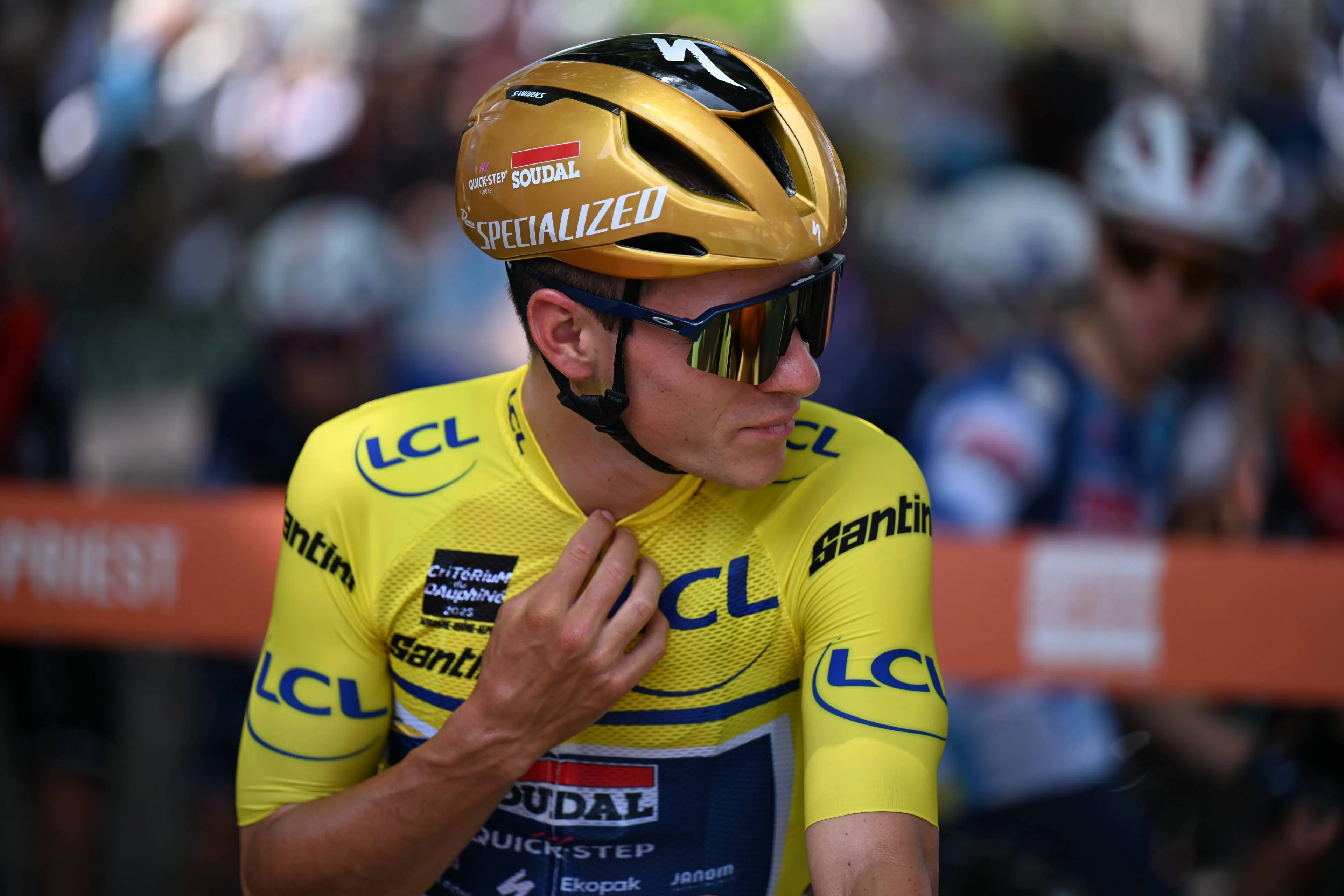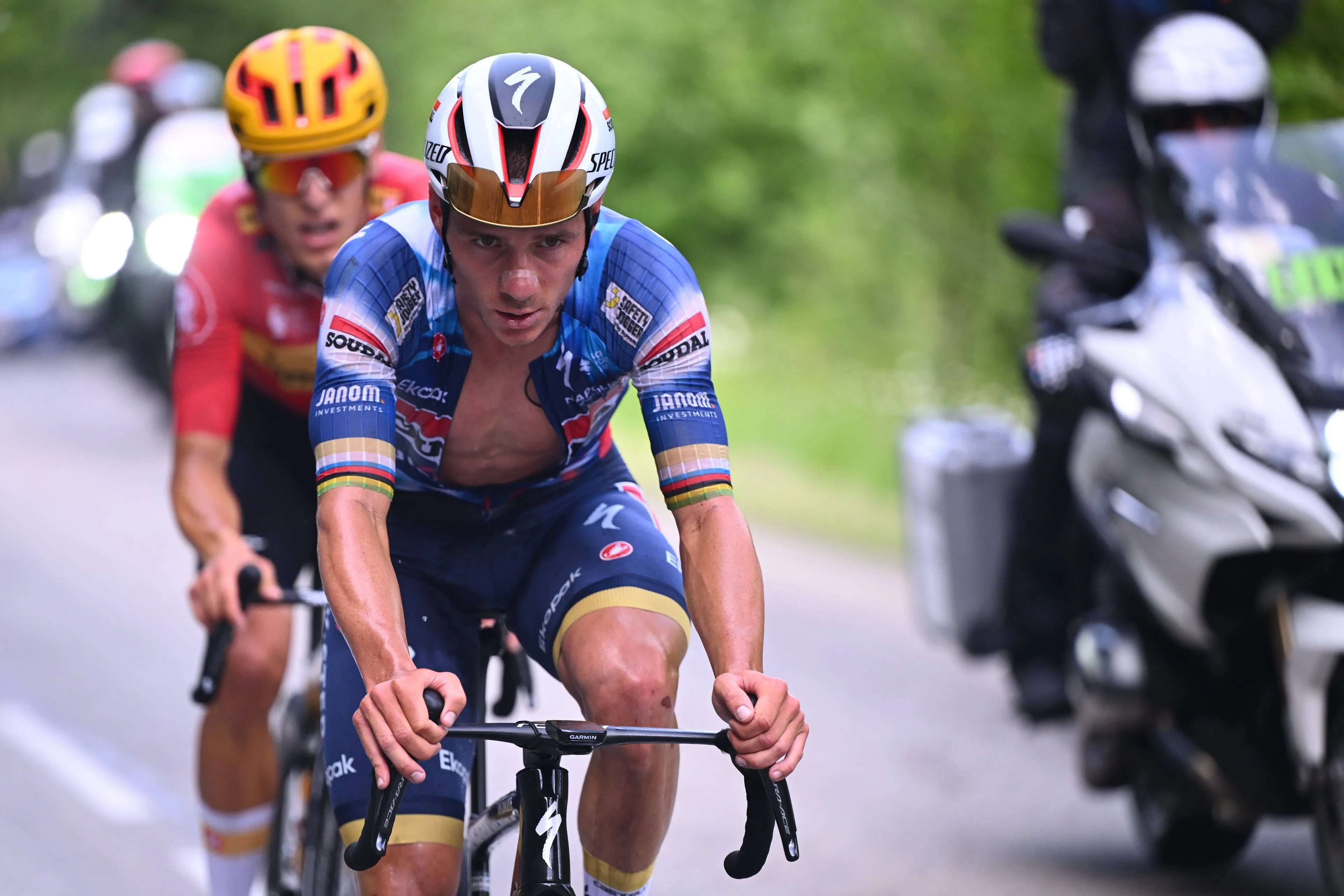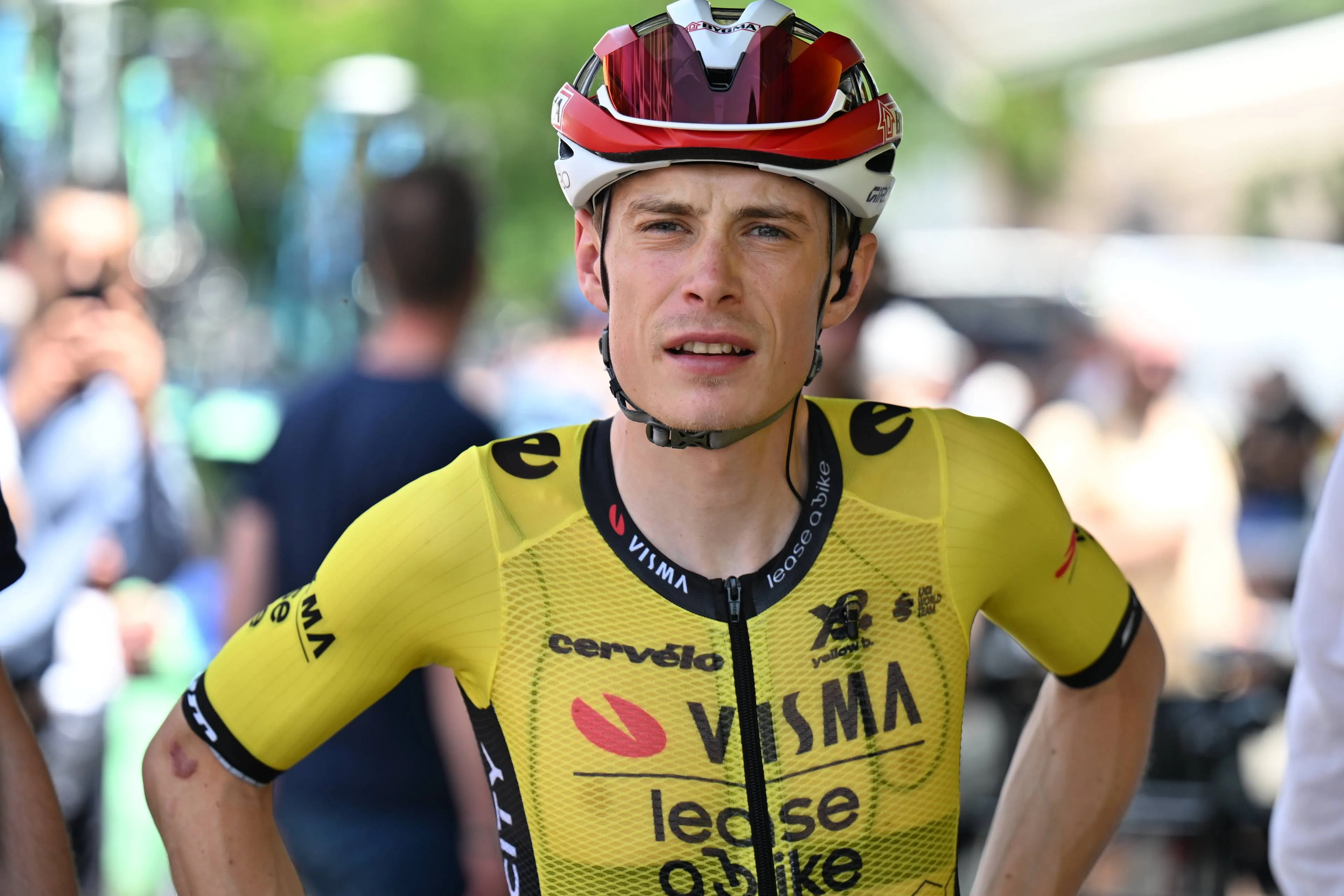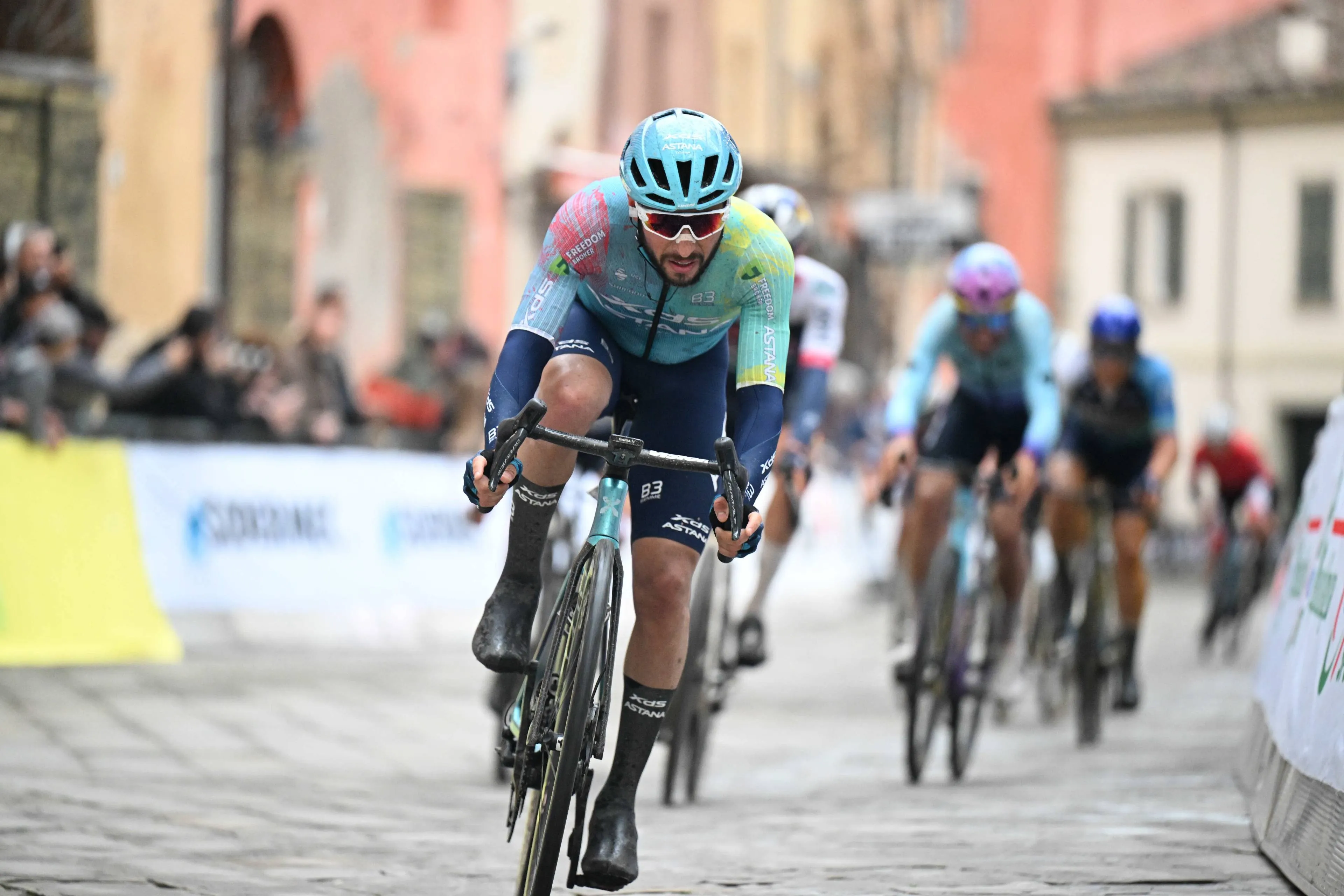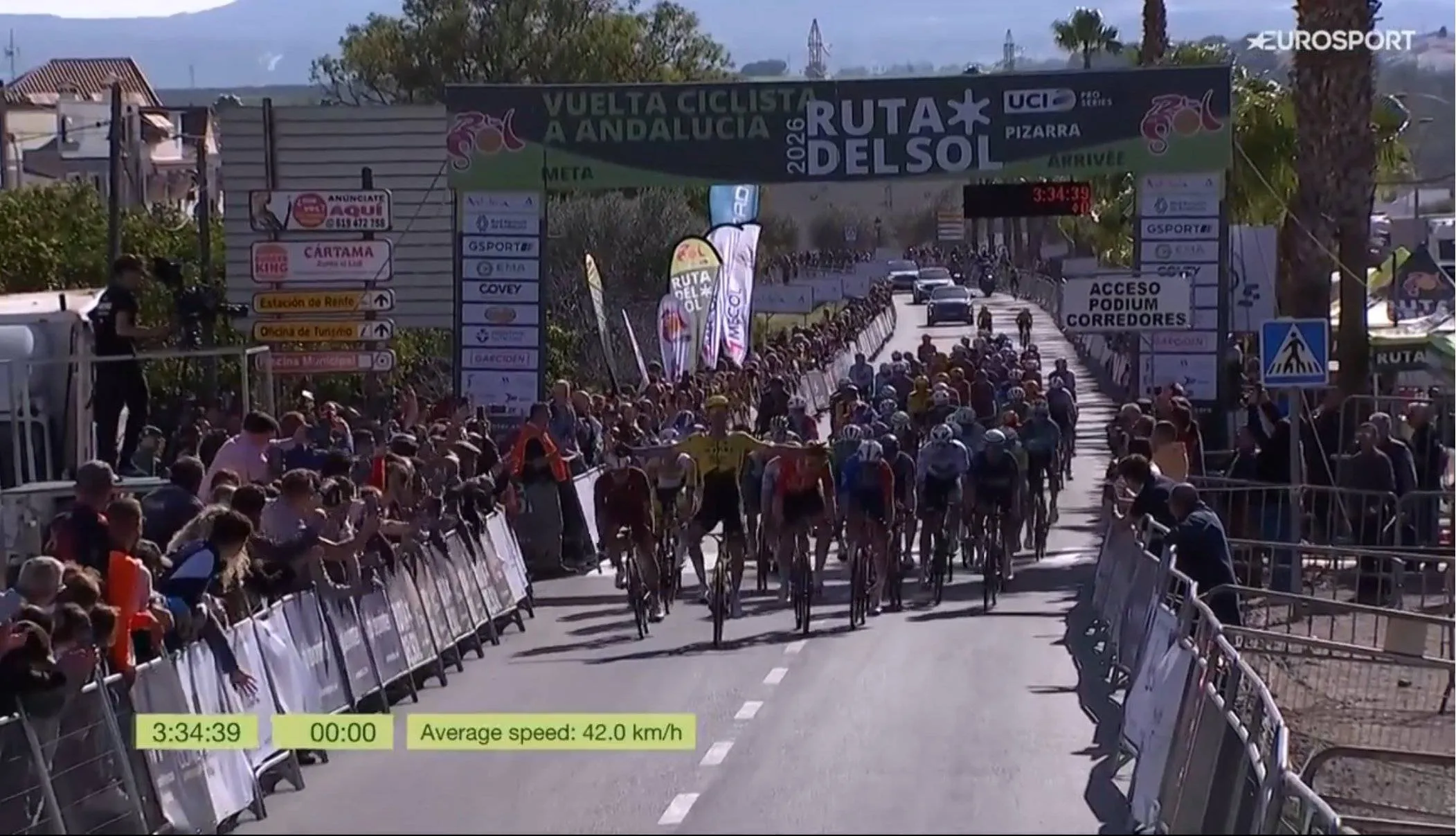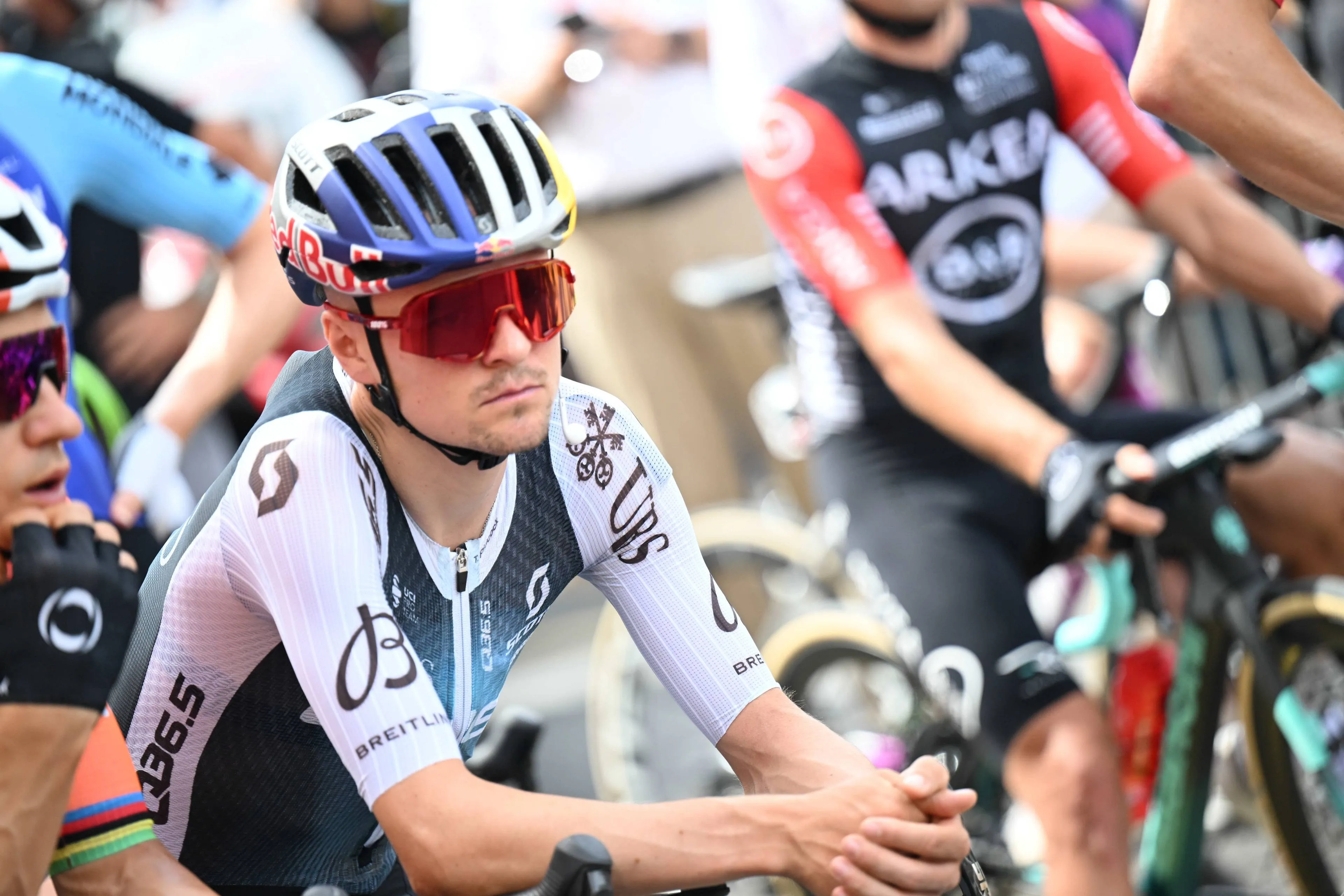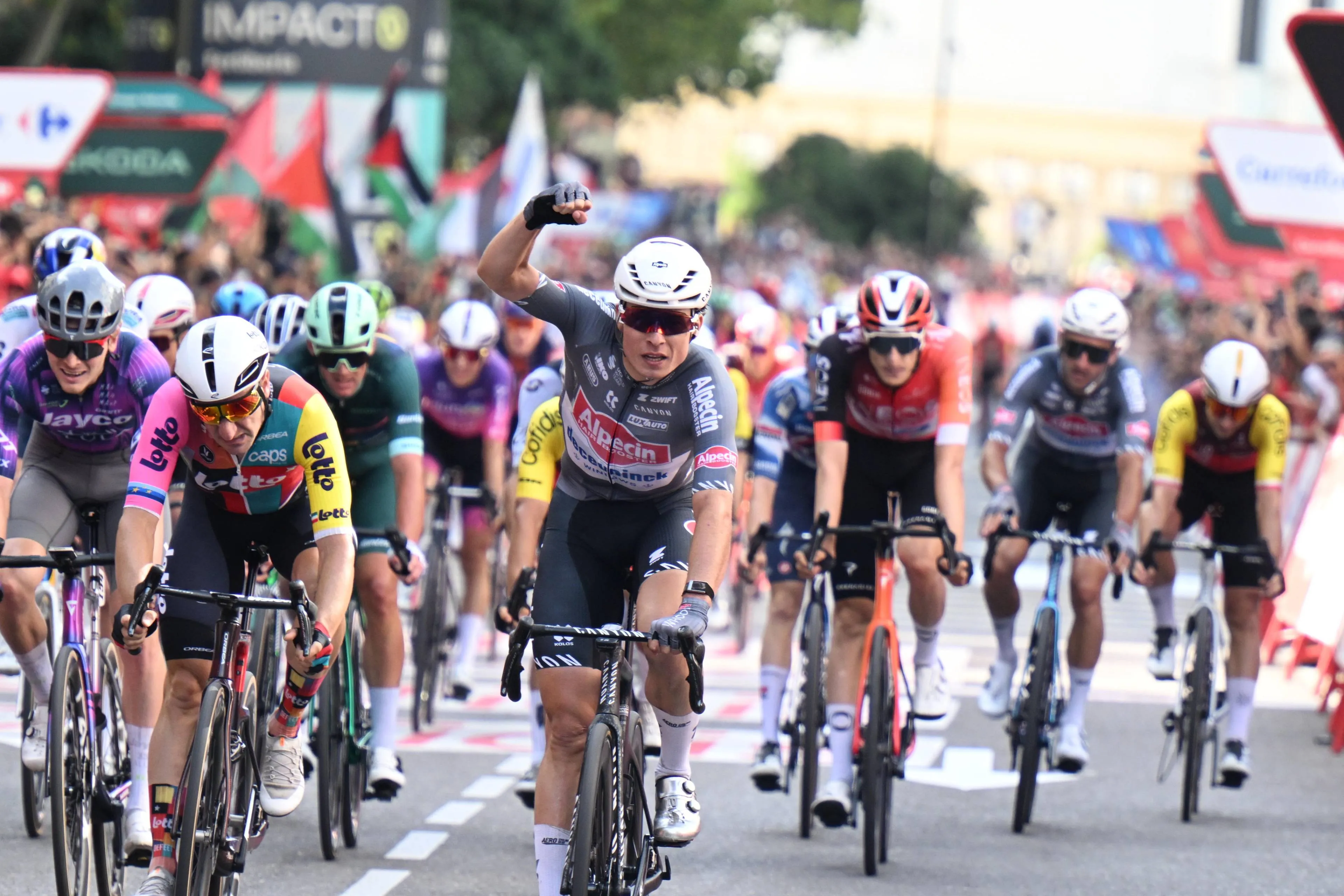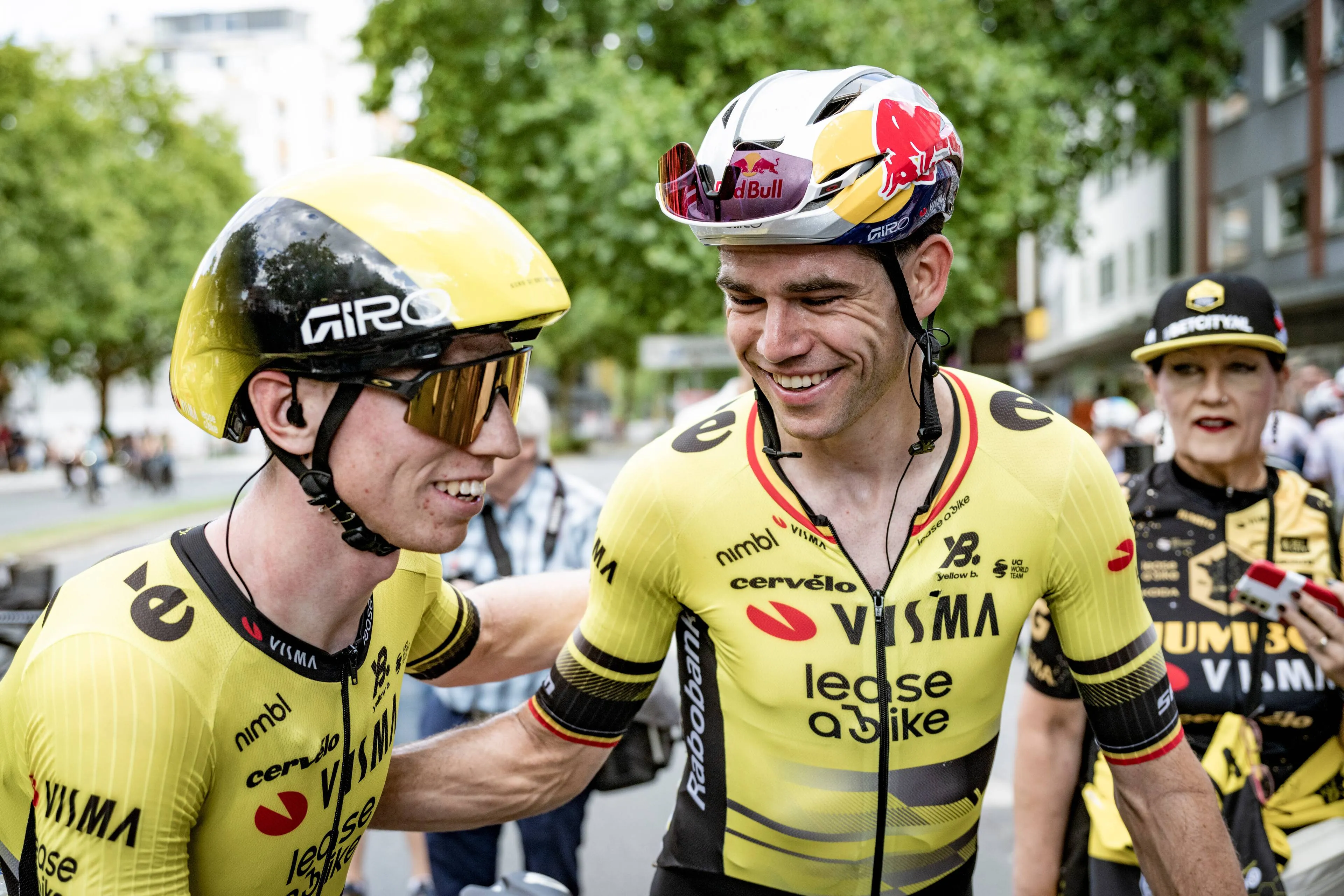“Do what you want but I ain’t going home” - Stephen Roche talks Tour de France with Bradley Wiggins
CyclingTuesday, 01 July 2025 at 15:00
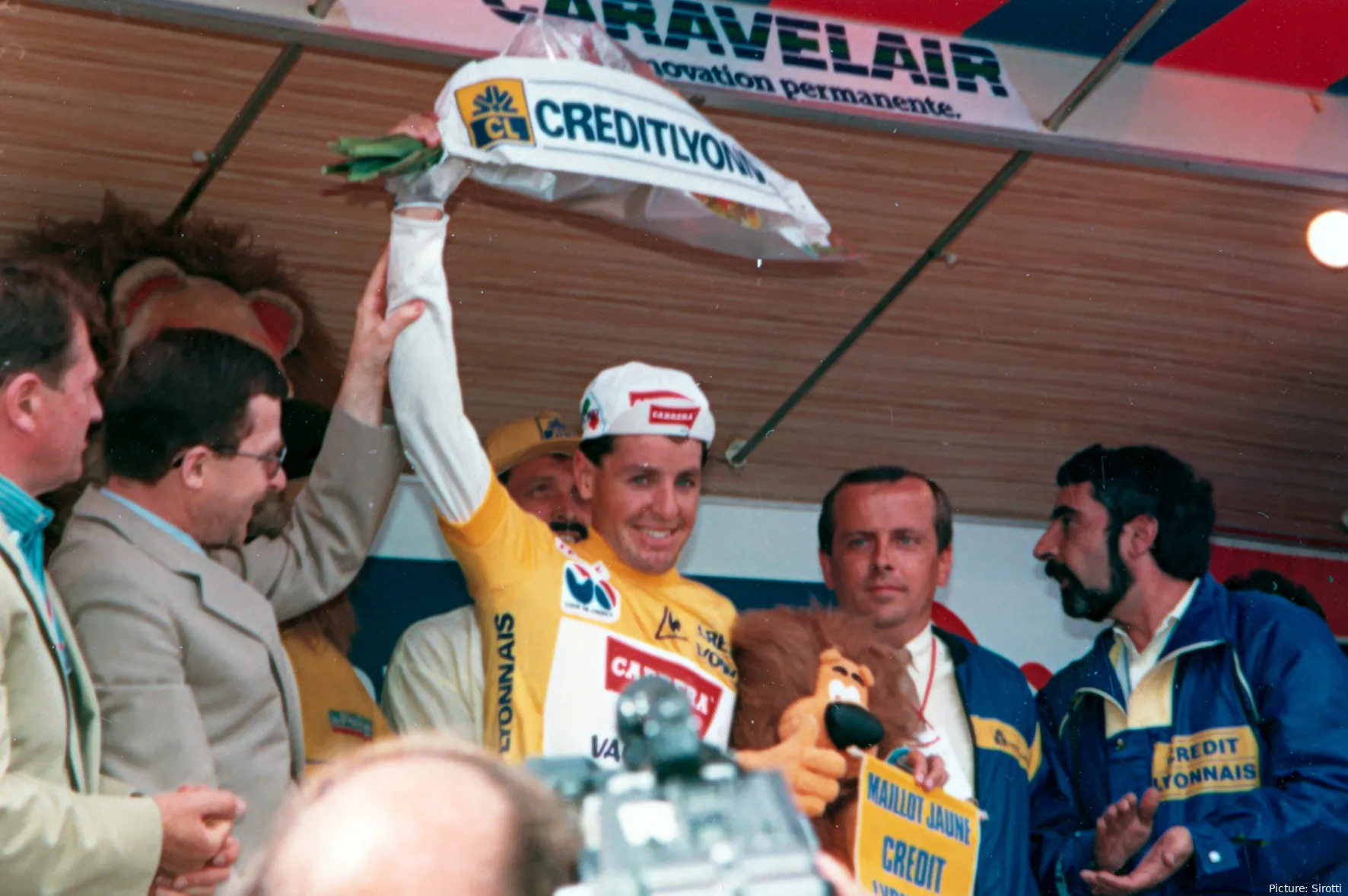
Stephen Roche joined Sir Brad’s Café with Bradley Wiggins
and Grahahm Willgoss for a deep dive into his legendary 1987 season, a year in
which he won the Giro d’Italia, Tour de France, and World Championships. It was
a year of glory, controversy, and unimaginable physical toll.
Wiggins opened the conversation by recalling seeing Roche in
Paris in 1993, standing on the Place de la Concorde for his final Tour de
France. “I’ll never forget Stephen saying, ‘I did 13 Tours, finished 13th in my
first Tour and finished 13th in my last Tour de France.’”
Read also
The episode quickly turned to Roche’s achievement last year,
when he posed for a now-famous photo with Tadej Pogacar, who had just joined
Roche and Eddy Merckx as the only men to win the Triple Crown. Roche explained:
“I said to Mario Gianetti, his manager, I said, ‘Mario, Mario, what about
getting a photograph of myself and Pog together?’... We took a few photographs,
a few selfies, and believe it or not, those selfies went around the world.”
But the bulk of the conversation focused on 1987: the year
Roche made history himself.
During the Giro d’Italia, Roche attacked teammate and
Italian favourite Roberto Visentini, who had won the race the year before. It
made him a target.
Read also
“The people were taking rice in their mouth and as I came
past, some red wine, and spitting it at me,” Roche recalled. “It was quite
hostile... I was basically protected at the start and the finish, my
mechanical, my bike, for fear somebody would sabotage it.”
His move came after he had lost the pink jersey to
Visentini. “I said to my teammate Eddie Schippers to bring me to the front
before the descent... I went down the descent without looking in the mirrors.”
When Roche’s team car caught up with him, they were furious.
“‘Stephen, what are you doing?’... I said, ‘Okay, well just go back and tell
Roberto I’ll stop if he stops. But as long as he’s riding, I’m riding on the
front—and I’m going to ride harder now. It’s war.’”
Read also
Visentini didn’t take it well. “He stopped right on the foot
of the podium, looked up at me and said, ‘Tonight somebody’s going home.’”
That night, Roche was whisked away by police. “Nobody wanted
to talk to me. I couldn’t talk to journalists... I opened my bedroom window and
on the terrace there was a guy called Angelo Zomegnan... I said, ‘Angelo,
Angelo, come here, I want to give you my story.’”
But the Italian press didn’t want it. “He politely says to
me, ‘Stephen, you know I totally believe you, but I’ve got one problem—the
paper is closed for tomorrow. If you survive tomorrow, I can guarantee you’ll
have a good article explaining your side the following day.’”
Roche did survive. He kept the jersey, and the story.
Read also
On another stage, Roche said Visentini tried to ride him off
the road. “He brought me over towards the ravine... so I put my hand on his
handlebars. I said, ‘Roberto, if I go, you come with me.’”
Asked by Wiggins whether he wore sunglasses to hide his eyes
from the crowd, Roche replied: “I was trying to stay focused... and also afraid
of getting something in my eye, people spitting at you and everything else.”
But the hostility only strengthened him. “I found this kind
of inner courage where I was saying to the Italians, ‘Do what you want, but I
ain’t going home.’”
Read also
At the Tour de France, Roche cemented his legend on the
slopes of La Plagne. Dropped by Pedro Delgado on the final climb, Roche
measured his effort. “I found I was holding him at 1:20, 1:25... with 4K to go,
I just started burying myself. I found energy where I don’t know where I found
it from.”
The effort nearly ended him. “I couldn’t move. I could move
my eyes but I couldn’t talk... the doctor saying to me, ‘Stephen, move your
legs, the cars are getting very close.’”
He needed oxygen and was taken to the Tour’s medical clinic.
That evening, his masseur asked what he wanted for dinner. Roche had a plan: “I
walk in as if nothing was happening and everybody was saying, ‘Stephen, great
ride today... unfortunately tomorrow is another mountain stage... but
nevertheless, a fabulous stage today.’ And in my own mind, I’m saying, ‘You
wait and see.’”
Read also
The next day, he did just that.
“I said to my teammate Schippers to bring me to the front...
in the first corner I left the group and I put 18 seconds into Pedro. For me
that was like nailing his coffin.”
Roche believed the psychological impact was just as
important. “By him seeing me being taken away in an ambulance one day, next day
if I can put one second into him... he’d say, ‘This guy is unhuman.’”
Asked about his post-career ventures, Roche laughed about
nearly getting involved in a cake shop business. “I didn’t know this but the
guys were actually avoiding paying their taxes... the police stopped our
project before we got too far.”
Read also
claps 6visitors 4
Just in
Popular news
Latest comments
- I just hope that he just says that he got cramps and that's it, rather than some long-winded excuse which makes him seem even more of a piece of...
 Rafionain-Glas18-02-2026
Rafionain-Glas18-02-2026 - finally, a team that does something smart. I could never understand why Ineos would like Egan train as he did alone. put a motorbike behind him with an earpiece to call out issues above. same with remco crashing into a postal truck.mij18-02-2026
- Wow, that is not a good sign for Remco. Great win for Tiberi!Pedalmasher18-02-2026
- Great champion Remco but his profile is more suitable for Ardennes-like races and tour with no very hard climbs. Not only Tadej and Vingegaard, there are a lot of younger cyclists (del Toro, Ayuso, maybe Seixas, Nordhagen and others) that will soon be big GC boys.
 maria2024202418-02-2026
maria2024202418-02-2026 - Evenopoel 1st real test, and he failedZamorano18-02-2026
- Remco is not the natural climber that riders like Tadej or Jonas are, no matter how much he trains and prepares for it. Yes, you can TT your way up moderately steep hills, but when the gradient gets super steep, he just can't keep up.
 santiagobenites18-02-2026
santiagobenites18-02-2026 - So against the better riders and a long mountain, Remco cracked. Sorry but way away from Pog and Jonasabstractengineer18-02-2026
- “I was portrayed as the devil" Bruyneel was really a talented team manager. His minor flaws: "coordinated, well-funded, and sophisticated doping regime" "hand-in-hand in implementing the team-wide doping programme" "was involved in trafficking and administering prohibited substances and methods, including EPO, blood transfusions, testosterone, human growth hormone, and cortisone. Teammates testified that nothing significant happened without Bruyneel's knowledge and approval." "fostered an environment where doping was considered a "fact of life" and necessary for success, effectively making it a condition of survival on the team. He also participated in or assisted with the cover-up of positive tests and doping violations." Those quotes show Bruyneel's true talent.Cyclingnut18-02-2026
- Fed up hearing "their" voicesslappers6618-02-2026
- When you join Ineos , learning , time , no pressure go out of the windowabstractengineer18-02-2026
Loading
Write a comment

